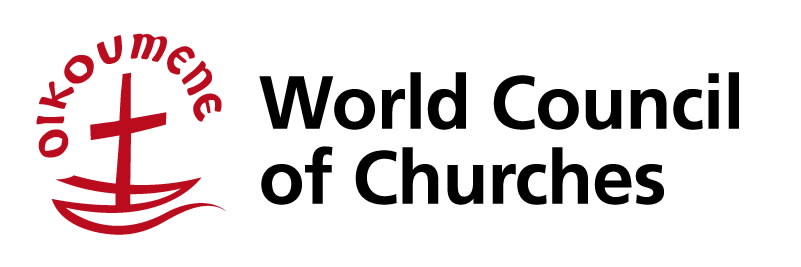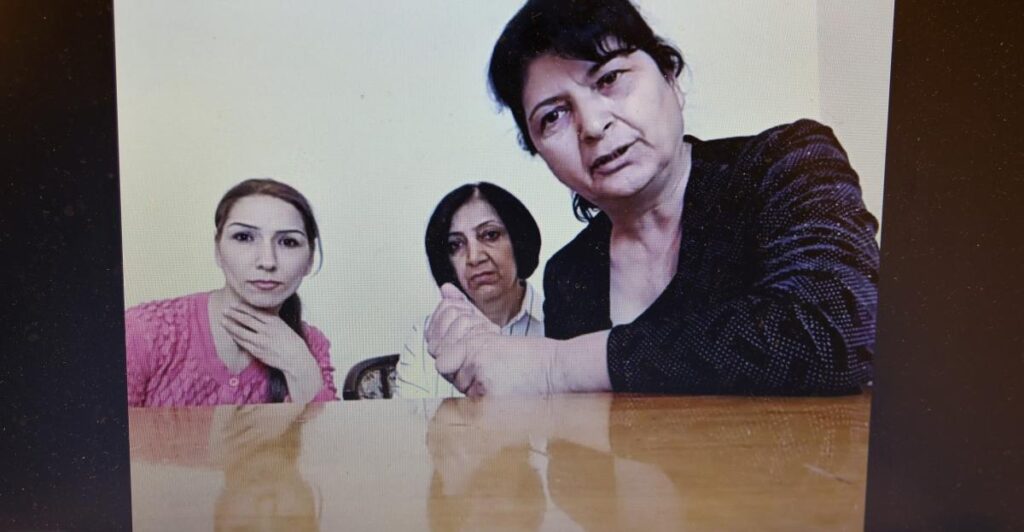WCC: Armenians fleeing war find open doors as churches offer shelter and hope

Families seeking refuge in Armenia say the brutal six-week war in the Nagorno-Karabakh enclave – known by Armenians as Artsakh – in September 2020 was the fiercest they have known in the series of conflicts since the 1990s.
“On November 9 we received an instruction that we had to leave our homes because the enemy was close, and it was not possible to stop them,” said Gevorg Gevorgyan, who spoke with his family around him in a Zoom call.
He was engaged in his third war since the 1990s, and his son Malxas joined him on the frontline during the latest conflict that was suspended on 9 November.
“When we were told we had to leave our village, we saw it wasn’t Azeri soldiers there, but it was Jihadist mercenary soldiers who were close to our houses. So, we had to leave. We could not even take clothes with us.”
The family lived in the Qashatagh region of Nagorno-Karabakh, where they were a self-sufficient farming family with livestock and pomegranate trees.
Finding safe refuge
Masiatsotn Diocese hosts the family in Armenia’s Ararat region, where the primate is Bishop Gevorg Saroyan, a member of the World Council of Churches Commission on Faith and Order who played a crucial role in setting up accommodation for the families. They are not far from the conflict frontlines.
“We hope that the Armenian government will find a solution with Russian peacemakers, also with the Azeri government, to bring Armenian refugees back to our homes,” said Gevorgyan.
“In 22 years, we never even locked our doors where we lived,” said his wife, Liana. “But we left everything behind from our life on the land. The children were terrified during the bombing. So, we feel safe in Armenia, but this is not our real home.”
Margarita Davtyan and her husband Kamo Davtyan lived comfortably in Hadrut city.
“On the 27th of September, the war started at 7:15 in the morning when we heard an attack coming from the air. Our children were warned not to touch the bombs on the ground as they were dangerous. The whole village was set alight,” said Margarita.
Local priest, Father Hovakim Harutyunyan accompanied the family in aninterview.
“The war was much worse than they said. This was not like the wars of the 1990s and that in 2016. People really suffered. They are still suffering from multiple war wounds and post-traumatic stress syndrome,” he said.
Other families who fled from the war in Nagorno-Karabakh are now hosted and supported by the Mother See of Holy Etchmiadzin in Vagharchapat City.
Marta Vanyan from Shushi City, Ariana Chakbazyan from Hadrut City, and Laura Hovsepyan, also from Shushi, recounted their experiences.
Cultural and religious heritage
Hovsepyan noted that the Armenian churches, and the cathedral in Shushi, were hit during the war.
“The whole cultural heritage that we have there is testimony to the Armenian lands. All three of us hope we can get back to our cities, our land, and our homes,” she said.
“We could get on with all nationalities in Shushi. And we were living in peace. I am not a nationalist. And I can easily live with other nationalities; we have nothing against other people.”
“Our problem comes from the powerful leaderships of other counties who decide which part of the land must go to whom. These are powerful people in Russia, Azerbaijan and Turkey,” said Hovsepyan.
She recalled that in the 1990s, the Armenians living in Baku or other places in Azerbaijan were forced to change and “Russify” their names, noting that as Armenians, they are proud to have names with the ending of “yan.”
However, she said, “We have hopes that we can go back to Shushi city.”
She spoke of the agony of war from both sides, asking how could people go back to Shushi “and drink a tea in peace knowing that more than 10,000 Azeri soldiers were killed in this war and Azeri mothers are suffering for their losses? I am in full solidarity with these mothers and share their pain.”
Armenian church offers help
The church-based response to refugees’ plight was highlighted by Dr Karen Nazaryan, director of the Armenia Round Table Foundation, working with the ACT Alliance and receiving support from Brot für die Welt Diakonie Katastrophenhilfe in Germany.
Nazaryan said, “We are working in a close relationship with the Armenian Apostolic Church, and with active social centres.”
He noted, “Of course, the first thing those refugees needed was food and winter clothes because many of them they came without any preparation at all and no means to protect themselves from the cold winter weather.”
The church is also looking after their spiritual, emotional, and psychological needs. “Right now, we have at least 50,000 refugees in Armenia, and that is a huge number for a small country like Armenia, where we have around only 2.8 million people.”
Unresolved conflict
The 2020 conflict was between Azerbaijan – supported by Turkey – and the self-proclaimed Republic of Artsakh and Armenia over the disputed region of Nagorno-Karabakh and surrounding territories.
It was the latest escalation of an unresolved conflict over the region internationally recognized as part of Azerbaijan but historically populated by a majority of ethnic Armenians who have long sought self-determination and independence since before the collapse of the Soviet Union.
However, with the break-up of the former Soviet territory, Nagorno-Karabakh was encompassed within Azerbaijan’s international-recognized boundaries.
Nevertheless, following a sharp conflict in the early 1990s during which many ethnic Azeris were displaced, the territory has in practice been self-governing since 1994.
Mediation efforts led by the Organization for Security and Cooperation in Europe Minsk Group failed to reach a final agreement on the region’s status.
The conflict flared again on 27 September 2020 and ended on 10 November when Armenia, Azerbaijan, and Russia signed an agreement to stop the fighting.
‘Painful deal’
Armenian Prime Minister Nikol Pashinyan called the deal “incredibly painful both for me and both for our people” following six weeks of intense fighting between Azerbaijan and ethnic Armenians.
The new ceasefire agreement prompted anger in Armenia as protesters stormed the parliament, beating up the speaker and reportedly looting the prime minister’s office.
This article is first in a World Council of Churches’ series of features covering the various aspects of the conflict in Nagorno-Karabakh and its impact on the local communities.

